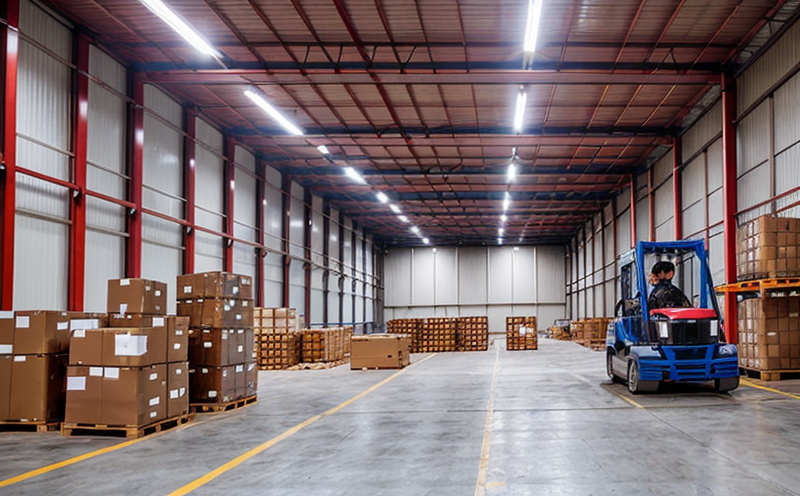EN 13427 Recyclability Testing of Packaging Materials
The European standard EN 13427 specifies a method for determining the recyclability of packaging materials based on their ability to be reprocessed into new products without significant loss of quality. This testing protocol is crucial in the context of industrial manufacturing and processing, particularly within sectors dealing with packaging and logistics.
Recyclability is not merely about the material's composition; it involves understanding how effectively a product can be repurposed after its initial use cycle. In industrial manufacturing processes where logistics play a significant role, ensuring that materials are recyclable helps in reducing waste and aligning with environmental regulations. For instance, in sectors such as food and beverage or pharmaceuticals, the choice of packaging material directly impacts the sustainability goals set by organizations.
The standard outlines specific procedures for testing the mechanical stability, chemical resistance, and other properties that affect recyclability. These tests are conducted on a range of materials including plastics, metals, and composites used in packaging. The results from these tests provide manufacturers with critical insights into which materials can be effectively recycled and reused within their supply chain.
Real-world applications of this testing include the development of new packaging designs that comply with recycling standards or modifications to existing products to enhance recyclability. For example, a beverage company might use EN 13427 tests to determine if switching from a single-use plastic bottle to a multi-material container would improve their environmental footprint.
Another aspect is the integration of post-consumer waste into manufacturing processes. By ensuring that packaging materials meet recyclability standards, companies can source recycled content more easily and confidently. This not only supports sustainability efforts but also aligns with customer expectations for eco-friendly products.
The standard’s methodologies are designed to be versatile enough to accommodate various types of packaging used across different industries. From lightweight plastic films in the food industry to corrugated cardboard in logistics, EN 13427 provides a uniform approach to evaluating recyclability. This consistency ensures that manufacturers can compare results accurately and make informed decisions about material selection.
The testing process itself involves several stages: sample preparation, mechanical stress tests, chemical resistance assessments, and final evaluation based on specific criteria outlined in the standard. Each step is critical for ensuring accuracy and reliability of the test results. Sample preparation requires careful handling to avoid contamination or degradation before testing begins.
During mechanical stress testing, samples are subjected to conditions that mimic real-world usage scenarios such as bending, stretching, or compression. Chemical resistance tests assess how well a material withstands exposure to different chemicals commonly found in manufacturing environments. These include solvents used in cleaning processes and acids/alkalis encountered during production.
The final evaluation considers all collected data from previous stages alongside additional factors like energy efficiency of the recycling process and overall environmental impact. Compliance with EN 13427 ensures that packaging meets stringent European Union requirements for sustainable product design.
By adhering to this standard, organizations demonstrate their commitment to sustainability while ensuring compliance with regulatory frameworks. This approach fosters trust among consumers who increasingly value environmentally responsible practices from brands they support.
Why It Matters
The significance of recyclability testing cannot be overstated in today’s world where sustainability is a top priority for businesses and consumers alike. Ensuring that packaging materials meet strict recyclability standards not only helps reduce waste but also contributes positively to corporate social responsibility initiatives.
- Reduces landfill usage by promoting the reuse of materials
- Promotes circular economy principles through effective recycling practices
- Enhances brand reputation among eco-conscious consumers and stakeholders
- Facilitates regulatory compliance with EU directives on waste management
Implementing recyclability testing early in the product development cycle allows manufacturers to identify potential issues before large-scale production begins. This proactive approach saves time, resources, and costs associated with redesigns or recalls.
Benefits
- Increased Sustainability: Ensures materials are suitable for recycling processes, reducing environmental impact.
- Better Compliance: Meets regulatory requirements set by the European Union and other international bodies.
- Enhanced Brand Image: Demonstrates commitment to sustainability, appealing to environmentally aware customers.
- Cost Efficiency: Identifies materials that can be recycled more cost-effectively within the supply chain.
- Product Innovation: Encourages exploration of new recyclable materials and designs leading to product improvements.
Eurolab Advantages
At Eurolab, we specialize in providing comprehensive testing solutions tailored specifically to meet the needs of industrial manufacturing processes related to packaging and logistics. Our experienced team of experts ensures that every aspect of recyclability testing is conducted accurately and efficiently.
- Comprehensive Expertise: Leveraging years of experience working with leading brands in various sectors, we offer deep knowledge across all relevant areas.
- Precision Instruments: Utilizing state-of-the-art equipment designed to deliver precise and reliable results.





